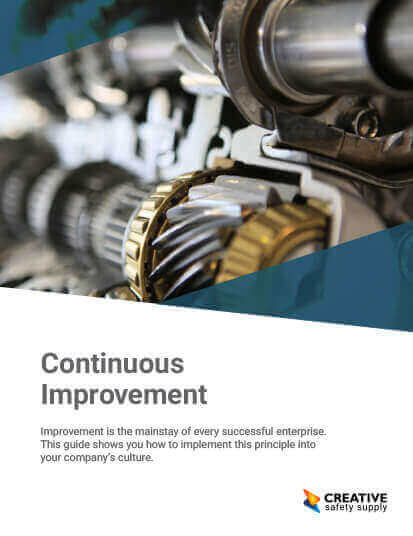
Continuous Improvement and Kaizen are two concepts that share common goals and principles, yet they have distinct approaches and applications. Both are integral to fostering growth, innovation, and efficiency within organizations. In this article, we will explore the relationship between Continuous Improvement and Kaizen, shedding light on their similarities, differences, and the impact they have on driving positive change.
Defining Continuous Improvement
Continuous Improvement is a broader philosophy that aims to enhance processes, products, and services incrementally over time. It emphasizes a systematic and ongoing effort to identify areas for improvement, implement changes, and monitor results. The goal is to create a culture of continuous learning, where every member of the organization is empowered to contribute to positive transformations.
Understanding Kaizen
Kaizen, a Japanese term meaning "change for better" or "continuous improvement," is a subset of Continuous Improvement. It is a specific methodology that focuses on making small, incremental changes in processes and operations to achieve significant improvements. Kaizen encourages involvement from all levels of the organization and promotes a sense of ownership over the improvement process.
The Common Ground
While Continuous Improvement and Kaizen have distinct characteristics, they share common ground in several aspects:
- Incremental Approach: Both Continuous Improvement and Kaizen advocate for gradual, step-by-step improvements rather than drastic overhauls.
- Employee Involvement: Both concepts recognize the importance of involving employees at all levels in the improvement process. Their insights and perspectives are valuable for identifying areas that need enhancement.
- Data-Driven: Both methodologies rely on data and metrics to identify inefficiencies, measure progress, and assess the impact of changes.
- Cultural Shift: Both Continuous Improvement and Kaizen require a cultural shift within the organization, emphasizing collaboration, learning, and a commitment to ongoing improvement.
Differences and Focus
Continuous Improvement encompasses a broader range of methodologies and approaches beyond Kaizen. While Kaizen emphasizes incremental changes, Continuous Improvement may include methodologies like Six Sigma, Lean, and Total Quality Management, each with its unique principles and techniques.
In essence, Kaizen is a specific application of the broader philosophy of Continuous Improvement. While Kaizen focuses on making small, continuous changes, Continuous Improvement encompasses a range of methodologies and approaches to drive organizational growth and positive change. Both concepts underscore the importance of fostering a culture that values ongoing improvement and empowers employees to contribute to the organization's success. By understanding the relationship between Continuous Improvement and Kaizen, organizations can tailor their approaches to suit their unique goals and challenges, leading to sustained success and progress.
Similar Questions
- What are Continuous Improvement methodologies?
- What is Continuous Improvement?
- How do Continuous Improvement and Lean Increase Efficiency?
- What is a Continuous Improvement Manager?
- What is the Continuous Improvement Process?
- What does Continuous Improvement and Innovation mean?
- What is a Continuous Improvement Engineer?
- What is the DMAIC Cycle? A Comprehensive Guide
- How has Continuous Improvement helped businesses?

